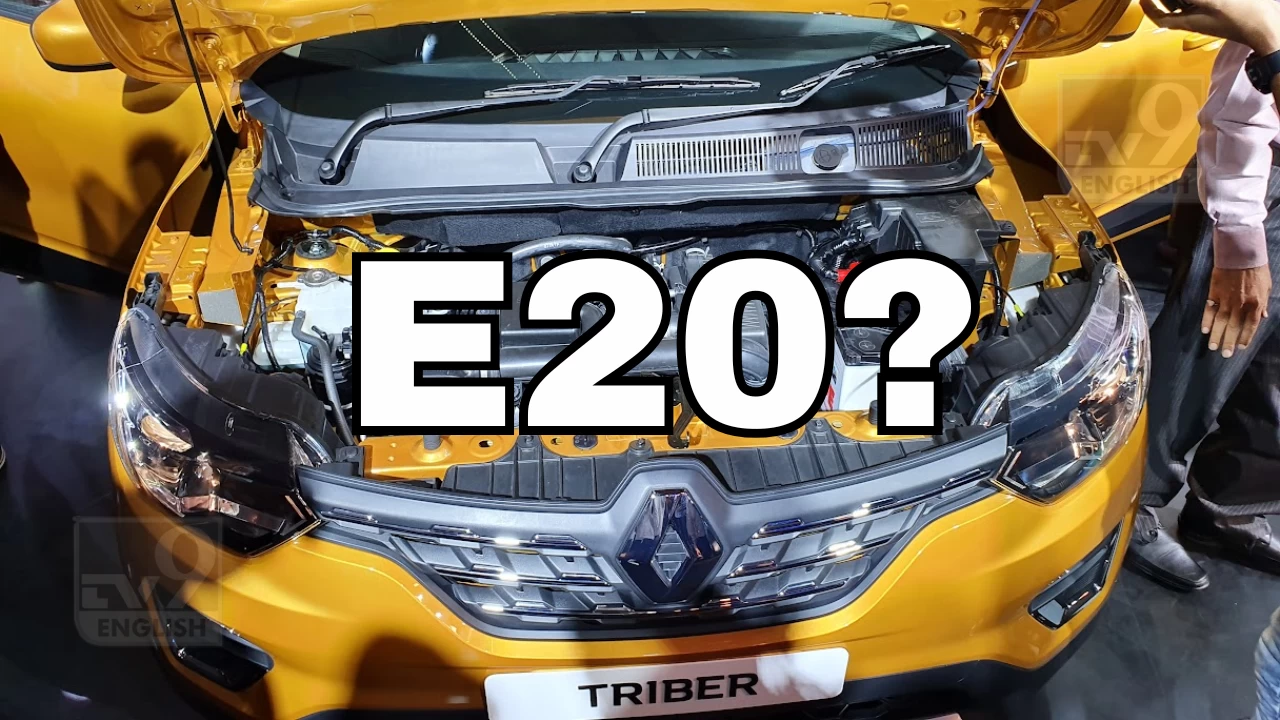

By signing in or creating an account, you agree with Associated Broadcasting Company's Terms & Conditions and Privacy Policy.


By signing in or creating an account, you agree with Associated Broadcasting Company's Terms & Conditions and Privacy Policy.

New Delhi: Fuel choices are changing fast in India, and so are the questions from car owners. With petrol pumps across the country rolling out E20 fuel, many drivers with older cars are worried. The biggest one doing the rounds is simple: can a vehicle certified for E10 safely run on E20 without long-term damage?
Renault India has now stepped in with a clarification after multiple customer queries, particularly around the Renault Triber (2022 model). The company says that based on joint studies conducted by Indian Oil Corporation (IOC) and the Automotive Research Association of India (ARAI), E10-certified cars, including its own, can indeed run on E20 fuel without adverse impact.
According to Renault, the Triber was certified on E10 fuel as per the norms applicable at that time for Type Approval and Production tests. To answer growing doubts, IOC and ARAI carried out durability studies involving multiple blends, including E20 used in E10-compliant vehicles.
The draft report, which was circulated to all carmakers after a Ministry of Petroleum and Natural Gas directive, concluded that there was no major damage or performance drop when these cars were driven with E20. Renault says this means customers using E20 in cars like the 2022 Triber need not panic.
The switch to higher ethanol blends is part of India’s bigger biofuel programme. The Centre says E20 can cut vehicular carbon emissions by nearly 30 percent compared to E10 while improving acceleration and ride quality. On top of that, ethanol is produced from crops, which means less dependence on crude oil imports and a boost to farmers’ incomes. The government has also positioned farmers as not just providers of food but also as suppliers of energy, dubbing them “Urjadaatas.”
For enthusiasts, this change is more than just an environmental policy. Ethanol-blended fuels have different combustion characteristics, which can influence everything from throttle response to long-term fuel system wear. While official studies say E20 does not harm E10 cars, most car owners just want Govt. to provide an option of non-ethanol blended fuel to be available at fuel stations along with E20 fuels.
Renault says that so far, there are no serious challenges observed with its cars running on E20, even if they were originally tested and certified for E10. This reassurance is important as India pushes toward wider adoption of ethanol blends.
For a driver, the shift to E20 may bring small changes, like a different smell at the pump or slightly altered engine sound, but the company’s message is clear: there is no need to worry about sudden breakdowns simply because of the fuel change.
Car buyers in India are increasingly asking whether their existing vehicles will survive the transition to alternative fuels. Manufacturers now face the task of balancing government roadmaps, technical certifications and customer confidence. For global brands like Renault, clarifying fuel compatibility is crucial in keeping users from feeling left out of a fast-changing policy push.








